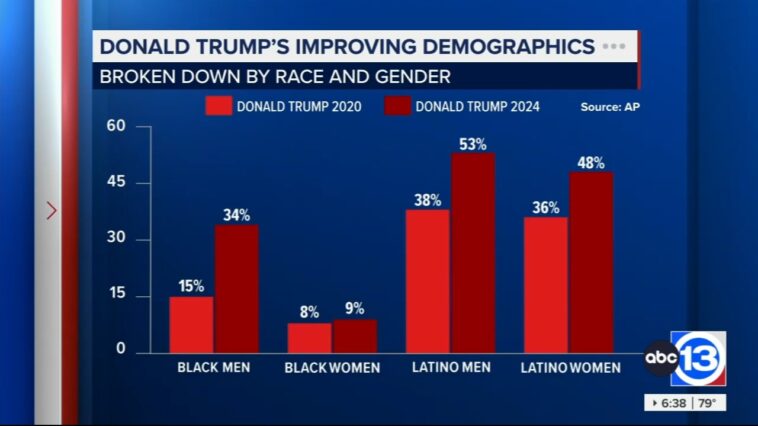The following editorial is an opportunity to reflect on the recent election results that took place in America, focusing particularly on the non-participatory voting-eligible part of the population. It was, indeed, an immediate cause for concern when approximately 89 million eligible voters decided against exercising their democratic right in the 2024 elections. Their absence from the electoral process eclipsed the participation in the polls for both the Trump ticket and Kamala Harris. Demonstrably, a larger segment of the population refrained from voting in 2024 compared to those that did in 2020.
While it remains unknown how these non-voters would have voted if they had participated in the election, it is crucial to note that these individuals are predominantly younger individuals and minority groups. These demographics are typically in alignment with the Democratic party, but a valid argument can be made about their evident lack of interest in politics, often disconnected from the updates and developments concerning current affairs.
Instead of fulfilling their civic duties, these significantly large numbers of eligible voters prioritized personal matters over the state of the nation, manifesting their shocking indifference. Regrettably, they didn’t find it in themselves to exercise their right to vote, the very foundation that helps uphold the democratic character of a nation.
For those who are gradually growing more aware of the happenings around them, they might now be looking back in regret. They would likely be astonished to discover the veracity of the dire pre-election warnings proposed by vice president Kamala Harris, demonstrating their lack of foresight and political responsibility.
They may find it difficult to comprehend how such an election could lead to replacing the principles of Diversity, Equity, and Inclusion with the disheartening values of White Power, Inequity, and Exclusion. This scenario arose from a single election, albeit one that perhaps lacked enough interested and involved citizens.
Surveying the situation, it’s difficult not to point out the gravity of what happened in certain swing states. The Trump ticket claimed victories with incredibly narrow margins in those states, likely contributing a great deal to the current dismal state of affairs.
It’s also worth examining the case of Massachusetts, a state traditionally known to lean Democratic. It witnessed a decline in voter turnout between 2020 and 2024 by about 145,042, even as the state’s population grew considerably. This decrease in electoral enthusiasm raises pertinent questions.
Was there some hidden resistance amongst the population against voting for a woman of color such as Kamala Harris? Or was it a mere reflection of general apathy and lethargy? It’s profoundly bewildering to even consider that Harris’ charisma might have fallen short in an age dominated by the entertainment industry and celebrity culture, seemingly outmuscling the significance of policy and democratic values.
A combination of reasons might have contributed to the reduced polling numbers, including a lack of faith in the candidates and their ability to deliver substantive change. But when evaluating who is responsible for the current mess, many should perhaps take a look at their reflection and question their own inaction.
Their lack of involvement in their democratic duties acts as a symptom of a larger disease: Voter apathy and indifference. Now, they might have recognized the duty that comes with their right to vote, as a responsibility to be a part of the democratic process. Chances are, they’ll be more than ready to cast their vote when the next election comes around.
A turnaround in the coming mid-term election could indeed challenge the prevailing unsettling status quo. It could go a long way in halting, to some extent even reversing, the current disaster many find themselves in.
More importantly, this could strategically set up the proceedings for a complete reversal in the following presidential elections in 2028. Striking this action could potentially help lead American back to a desirable path. A path marked by mutual respect, at home and abroad, that honors the principles this great nation was originally built on.
It’s vital to remember that the choices we make during elections directly shape the socio-political landscape of the country. Our votes, or lack thereof, can bring forth drastic changes that might roil the very essence of civilization.
Every citizen should reflect on this reality and actively participate in voting processes to prevent such unforeseen circumstances that could uproot the very ethos of an inclusive and equitable society which we’ve worked so hard to build.
In conclusion, those disillusioned with the state of politics must harness their dissatisfaction into fruitful action, namely voting. Their active participation in future elections will reestablish the balance, protecting democracy and ensuring that the nation veers back onto the path of decency for everyone, regardless of their political leanings.

